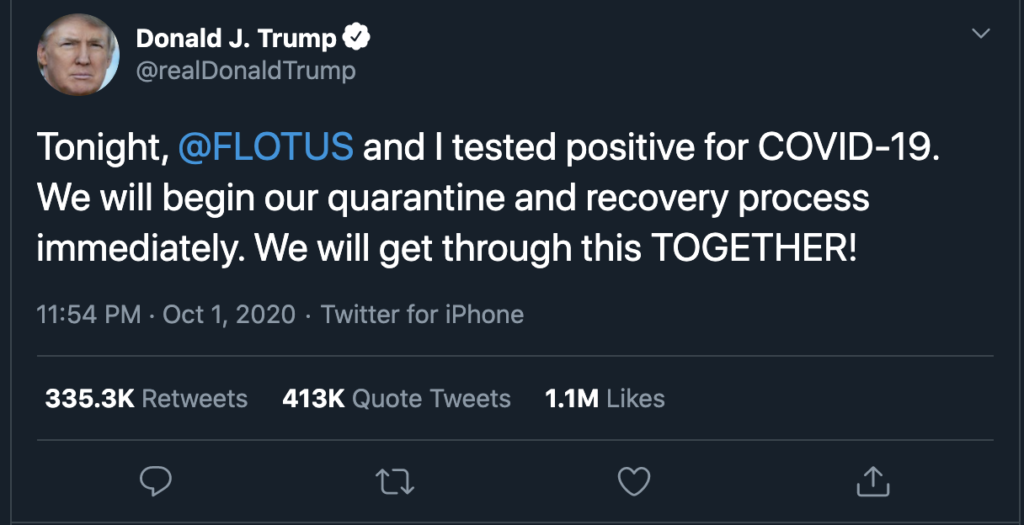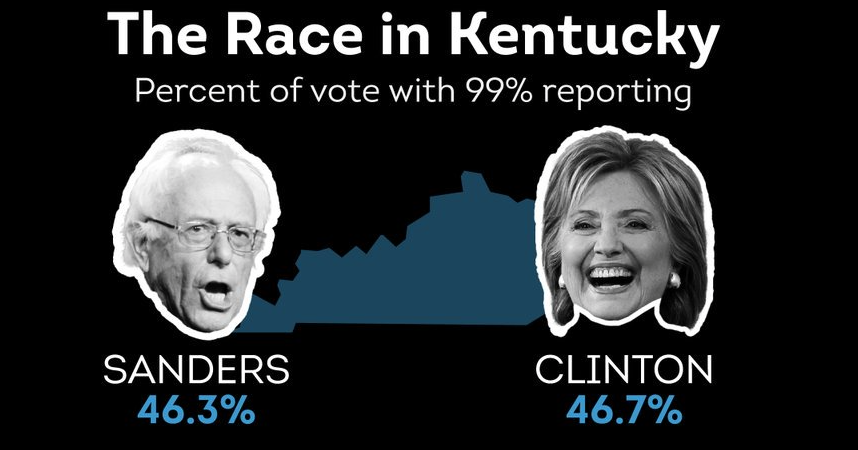Clinton Takes Kentucky, Sanders Win Oregon
18 May, 2016
It took a last-minute campaign blitz and a significant financial investment for Clinton to win the Kentucky Democratic primary by half a percentage point over her stubborn primary foe Bernie Sanders — in a state she won by 35 percentage points over Barack Obama in their 2008 primary clash and where her family has deep political roots going back decades.
Sanders, after racing Clinton right up to the finish line in the Bluegrass State, easily won the Oregon primary, and declared at a raucous rally in California that despite pressure from the Clinton campaign to abandon his quest for the nomination, he would stay in the race “until the last ballot is cast.”
Clinton did not appear in public on Tuesday night, but her campaign tweeted thanks to the people of Kentucky and said “we’re always stronger united.”
In the end, Tuesday’s political drama didn’t measurably alter the state of the Democratic primary. Sanders is poised to walk away with more delegates than Clinton from the night. But Clinton maintains an overall lead of roughly 280 pledged delegates with only one significant night remaining in the contest — June 7, when, win or lose the states in play that night, she is expected to formally clinch the nomination after voters in delegate-rich California and New Jersey weigh in.
But Clinton’s cliffhanger victory in Kentucky, where the Secretary of State’s office said she led by 1,923 votes with all precincts reporting, spared her the embarrassment of a brace of losses on Tuesday and will counter a media narrative that her failure to finally snuff out the Sanders campaign is a sign of weakness.
Despite the former secretary of state’s status as the almost certain Democratic nominee, tens of thousands of Democratic voters still prefer another candidate — Sanders. It’s a scenario that will do little to ease questions about enthusiasm for her candidacy, message to blue collar workers and personal campaigning skills that could resurface in a general election campaign against presumptive Republican nominee Donald Trump. Clinton headlined 11 campaign events over the last few weeks in Kentucky, but may have been hurt by her remarks in a CNN town hall meeting in Ohio in March that her clean energy plan would put coal companies “out of business.”
On the plus side for Clinton, Tuesday had a happier ending than losses in West Virginia and Indiana in recent weeks — states she also won against Obama in 2008. And while Kentucky’s returns will be pored over by pundits, they did not reshape the state of the race. In addition to her pledged delegate lead, she has an overwhelming advantage among superdelegates — party officials and lawmakers who can vote however they choose in July’s Democratic National Convention. In order to deprive her of the nomination, Sanders would have to convince large numbers of super delegates that she is too badly damaged to beat Trump in November — a Herculean task.
Sanders’ campaign manager Jeff Weaver told CNN that the close race in Kentucky was a sign that a lot of Democrats “are having second thoughts” about Clinton. “The media is ready to call this race over, but I think voters in the various states want to see this race go on.”
CNN
Image AJplus twitter
Mentioned In This Post:




















